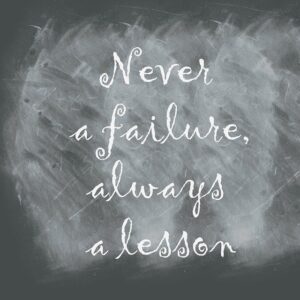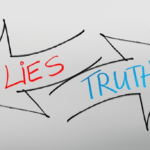How to live a meaningful life – a stoic’s view
(≈15 min read)

In this article, I’m going to outline one of my favourite branches of philosophy to date: stoicism. Studying it has honestly changed my life in so many ways, and I can’t wait to share all the different things I’ve learnt about it. In short, stoicism explores different mind-sets you can adopt and different things you can do to live a more fulfilling and meaningful life.
Remember what’s in your control
Stoicism pushes the idea that we should always bear in mind what’s in our control and what’s not. Too often we allow things that happen to us, things that are beyond our control, to spark rage or sadness or distress.
Stoicism proposes that we draw a kind of imaginary line. There are things in this world that you can control and there are things you cannot. The only two things that are under your control: your thoughts and your actions.
Nothing else is in your control. So when something bad happens, it can be very useful to acknowledge just which side of the line this happening falls on. Is this something that was brought about because of your thoughts and actions or was it something that you were simply not in control of?
William Irvine, philosopher and proponent of stoicism, proposes the trichotomy of control. He encourages us to separate events that occur into three categories.
- Things that we have complete control over
- Things that we have no control over
- Those we have some but not complete control over
An example: imagine you’re waiting for your morning bus. It’s been ten minutes and the bus still hasn’t arrived. You’re starting to get frustrated. How might you apply the trichotomy of control to improve your situation?

First, you might consider what things you have no control over; you have absolutely no control over when your bus is actually going to arrive. No amount of complaining or anger or frustration is going to make that bus driver go any quicker. All negative emotion is doing is worsening your mood.
Secondly, you might notice that although you have no control over when your bus is going to arrive, you do have complete control over what you do while waiting for your bus.
Yes, if you think it’s going to be productive, you can proceed to spend that entire time secretly cursing to yourself and getting mad at the bus driver and the whole transport system…or you can proceed to use this unspecified period of time to your advantage. You might read a book on your phone or sort out your to-do list.
Categorising an event that’s triggering a negative emotion into one of those three categories and acknowledging whether you really can do anything to change that event can help put things into perspective. You should only be concerned about things you can actually change.
As well as categorising events that are happening in the present moment, you can also categorise events that are due to happen.
Randy Armstrong – “Worrying does not take away tomorrow’s troubles. It takes away today’s peace.”
Let’s say for example you’re waiting for your exam results and you’re beyond nervous, consumed by fear. How might you use the trichotomy of control to improve your mood?
Well first you might consider whether what grades you’ll get are in your control. If you’ve already taken the exam, then it’s pretty clear that no amount of worrying will change a thing.
“But what happens if I get bad grades?”

Well then you do, and you’ll react, you’ll do things in your control to improve the situation. Worrying about whether you forgot to write your name on the exam or missed the last page or messed up the entire paper is not going to change whether you actually did. Worrying about what you might get is pointless because it won’t change what you’ll actually get.
The main point to remind yourself of is that whatever happens is now beyond your control. All you can do is accept what comes and learn from it. Let’s say you do end up getting bad grades. There is no point losing your emotional stability over things that you can now do nothing to change. Whatever bad thing has happened, as author and psychotherapist Russ Harris, puts it:
“Accept it. Take effective action to improve it.”
There’s no point getting mad about what happened; all you can do now is use your thoughts and actions to make things better.
Live life your way
A key component of stoicism is this ability to differentiate between what you truly want and what you want because of how others may perceive you. To help with this William Irvine proposed a thought experiment:

Imagine you wake up tomorrow and everyone around you has disappeared (an incredibly appealing thought, I know). Everything’s still there, buildings, clothes, cars but there are just no people. How would that change your perspective on what’s important in life? Now would you feel the need to wear designer clothes or would you instead prioritise comfort? Now would you really want to live in that huge mansion or would you prefer a small and cosier and more comfortable dwelling? Would you really want that diamond ring or that expensive jewellery?
Although you might initially object to the thought experiment, giving an argument along the lines of ‘this world is not the world we actually live in and so inferences cannot be drawn’, that’s not the point.
The thought experiment is there to demonstrate just how much of what people want is not what they want but what they want because of how other people might perceive them. Much of what they want, they only want because of what society has labelled as “success”.
Some people say they want money to go and enjoy extravagant holidays on deserted beaches. But I guarantee your best holidays are not the ones you had at the most expensive place but instead the ones where you were surrounded by the best people.
The same is true for almost every other one of life’s experiences. Something that money can never buy: connection. (If you’re interested in learning more about the connection between money and happiness, feel free to check out my article here.)
Abigail Van Buren – “If you want your children to turn out well, spend twice as much time with them, and half as much money.”
Dealing with the mental roommate
Have you ever noticed that your mind has a mind of its own?
You’re sprawled across your sofa, ready for a relaxing night of TV, when suddenly a thought pops into your head.
“I need to get some cake from the fridge.”
You try and push the thought away, convince yourself you don’t need it. But the more you try convincing yourself, the worse the urge becomes. And then eventually, you have no choice – that chocolate cake is just too much to resist.
Stoicism provides ways to ensure those unconscious wants and desires you feel don’t control you. Since the thoughts and desires you have are in your mind, it’s only natural for you to take ownership of them. After all, they are your thoughts.
But just because you have a thought or desire, you don’t have to take ownership. The rational portion of your brain didn’t ask for that thought or desire to be there; it in a sense bubbled up from a deeper more primitive part.
William Irvine, professor of philosophy, uses the ‘roommate analogy’.

He suggests that living with this primitive subconscious mind that provides intrusive thoughts is like having a roommate who keeps telling you what you should think, want and feel. A living nightmare.
You might succeed to get the roommate to shut up for a bit but soon he/she’ll be right back at it, making new suggestions. It’s unlikely in reality that you’d put up with this roommate for particularly long. The problem is, you and this roommate are stuck together in your skull until your very last day on Earth.
You need to devise a strategy to deal with this roommate situation because exercising willpower to shut up your roommate constantly is too exhausting. The question is: what do you do?
Mindfulness and meditation
Well that’s where mindfulness comes in. Mindfulness enables you, in the analogy, to know the dynamics of the situation better. By practising mindfulness you can learn to cultivate a better relationship with this roommate and realise that although s/he can tell you what to think and do, you don’t have to listen.
You don’t have to take ownership of the thoughts this roommate provides. By using the rational part of the mind you can better deal with the sub-rational part.
Stoicism actively encourages you to practise rooting yourself to the present moment. So although mindfulness isn’t usually explicitly mentioned in stoic literature, practising it can still significantly benefit your emotional wellbeing.
The basic concept behind mindfulness is that we, as humans, experience a great degree of psychological pain through either intense rumination about the past or intense worry about the future. Mindfulness teaches us how to better access the present, to live free from the burden of the past or the future.

To observe the world in all its beauty without our prejudices, opinions and beliefs interfering can really be a wonderful thing. Learning to have a heightened sense of awareness about the world also enables you to have a heightened sense of awareness of yourself.
I won’t go into detail on how exactly you might practise mindfulness right now, since I have a whole article especially dedicated to it, but to outline a Buddhist idea, the ultimate aim is for your thoughts “to become like robbers in an empty house”. They cannot affect you or hurt you or take anything away from you.
You should instead view your thoughts as a kind of consistent and constant background radio noise that you can choose whether or not to pay attention to. You can tune in for the helpful thoughts and just allow that blur to continue for the unhelpful ones.
Meditation, mindfulness and becoming simply aware of thoughts as opposed to trying to repress them can all help in this journey towards improved contentment.
Fame is pointless
This might be mildly controversial, but Stoic philosophy pushes the idea that striving for fame will not imbue your life with rich meaning. In modern society, young children, sometimes even adults, live under the delusion that being famous would induce instantaneous happiness.
If this were the case however, the rate of celebrity suicide wouldn’t be so scarily high.

When a celebrity comes to the sudden realisation that all which they thought fame could provide to fill that empty void has not come, emotional pain becomes almost inevitable. Then to remove that pain, the quick and easy solution many resort to is to drown hopelessness and sorrow with drugs and alcohol. And that’s where the cycle of addiction begins.
Then comes dependency, reliance and then either an intervention where the celebrity rises stronger and wiser than before, or demise. Now obviously this won’t happen to every celebrity but it’s still a rough representation of the pattern of events that could easily happen when someone believes fame will imbue their life with meaning.
Fame simply doesn’t provide us with deep and meaningful connections, connections that are necessary to live a happy life. A study was conducted by the Harvard Study of Adult Development which followed the lives of 724 men placed in two groups for a period of 75 years to find factors that could increase the odds of living a happy and healthy life.
Robert Waldinger, director of the study, said in a TED talk:
“When we gathered together everything we knew about them about at age 50, it wasn’t their middle-age cholesterol levels that predicted how they were going to grow old. It was how satisfied they were in their relationships. The people who were the most satisfied in their relationships at age 50 were the healthiest at age 80.”
Fame cannot buy connection and without connection, we are much less likely to live healthy, happy lives. The quality of our connections is far more important than the quantity. A hundred thousand people all cheering your name will not help to stave off loneliness. And loneliness kills. The way stoicism sees it:
What’s the difference between a man who’s spent his entire life in the limelight soaking up attention and a man who’s spent his entire life rotting in a prison cell?
Both will die and both will become distant memories, things of the past. Sure, the famous man might preserve his mortality for a tad longer, given that he’ll probably be remembered, but like anyone, eventually this will fade and his legacy will become non-existent.
If the man in prison spent his entire life simply having fun and actually enjoying his time there, irrespective of whether he was locked up or not, you could argue his life was better than the life of the famous man.
Legacy is a strange thing. Many people want to become famous simply because they crave the attention fame might bring. But what’s the point in fame if at the end of the day, it’ll all disappear regardless? Why not use the one life you have doing things you truly enjoy rather than chasing something you want solely because of how other people will perceive you?
This life is yours. Stoicism would encourage you to not let the opinions of others dictate who or what you should be.
Marcus Aurelius – “The only lasting fame is oblivion.”
The dangers of comparison
You’ve no doubt been told this three million times already, but in modern society, a great deal of suffering stems from comparing ourselves to others. When you play the comparison game and base your self-worth on other people, you’re setting yourself up to lose. The stoics were able to recognise this all the way back in the early 3rd century but arguably, with the technology available to us today, the danger of comparison is worse than ever before.
No matter how good looking you are, there’ll always be someone who looks better (for most of us normal people, at least). No matter how smart you are, there’ll always be someone who’s smarter. No matter how good you are at anything, you’ll always be able to find someone who your brain can use to justify your own inadequacy.
Social media exacerbates this problem. So many of us wake up, automatically reach out to grab our phone and as we aimlessly scroll, our mind absorbing all this amazingness and talent seemingly oozing from every other person around us, we, lying frozen in bed, can’t help but to compare ourselves to them, can’t help but to think of ourselves as a failure, as ‘not enough’.
Social media glamorises others to the point where you can easily start to believe that average broken people are simply deficient of any real flaws or weaknesses. You’re not exactly going to get many people who’d be content posting a sub-par picture of themselves and so all you’re left with is the good stuff, all those pictures that took half an hour to perfect.

You’re also imbued with this distorted sense of reality which encourages you to believe that you’re the only person not working ten hour days or writing a novel or blogging daily or starting up a business. But what you’re comparing yourself to is nothing but a highlight reel.
What someone posts online is not a representation of them. Behind the screen and the glamour, they are a normal person who feels pain and suffers and feels that same empty, vacuous void in the pit of their stomach as you.
I get that it’s hard to accept but when you start to put your needs first and think more about what you want rather than how what you are doing compares to others and how it might make you look, you’re increasing the odds of you feeling more content.
In general, the only person you should be comparing yourself to is your past self. When you start becoming reliant on likes or follows to make you happy, you’re just subjecting yourself to a perpetual feeling of deficiency – no matter how many likes or followers you have, you could always have more.
As the stoics would say, if you’re instead content with whatever it is you’re doing, irrespective of others, then that should be enough. You shouldn’t need pats on the back for your achievements. You shouldn’t do things just to impress others. As Marcus Aurelius said:
“Anything in any way beautiful derives its beauty from itself and asks nothing beyond itself. Praise is no part of it, for nothing is made worse or better by praise.”
As I note in my ‘life list’, a good way to determine whether a goal you’re striving for is a goal that you truly want is by asking yourself the following question:
“If I were not allowed to talk to anyone ever about this goal after I achieve it, would I still be doing it?”
If the answer is yes, then that means you want to do this thing for you and nobody else. A no, on the other hand, indicates the goal is motivated by how you want to be perceived by others.
Marcus Aurelius – “It is wholly possible to become a divine man without anybody’s recognition.”
The shortness of life and the inevitability of death
In his book, ‘Meditations’, Marcus Aurelius repeatedly mentions how we can use the inevitability of death to help shape our lives in the present. Take a look at the following two quotes from the book.
“Ask yourself this about each action: ‘How does this sit with me? Shall I regret it?’ In a short while I am dead and all things are gone.”
“You may leave this life at any moment: have this possibility in your mind in all that you do or say or think.”
The underlying message is this: you don’t know how long you’ve got.
Surprisingly, I’m not trying to scare you here. But, that said, it is technically true that you might die tomorrow. You might die in a week, in a month, in a year, in a hundred years. It’s going to happen.
And that fact in itself can genuinely revolutionise how you view time. Time is not a commodity. It’s precious and you don’t have unlimited supply of it. Every day that passes is a day you’ll never get back.
With that in mind, it becomes kinda clear that wasting this one life you have seems somewhat stupid.

Life’s just too damn short to let it fizzle away and realise only on your deathbed that you didn’t live fully. Before you know it, it’s all going to be over…everything you know and love… gone. That means if you don’t do the things you want to now, it’ll soon be too late.
If we were able to do things over and over forever, we would lose appreciation for them entirely. It’s the finitude of life; the fact that everything comes to end that motivates us to do painful things.
The procrastination that would ensue if life was infinite would be immeasurable – we could always do that painful activity tomorrow.
Imagine for example the difference between an average person eating a meal and a prisoner eating that same meal but knowing it is their last. How might the experience differ for each person? Who would appreciate the food more and be more present whilst eating? Clearly, the idea of finitude, of time being finite, is what makes things meaningful.
In my article, ‘How to stay motivated while pursuing your dream’, I discuss the ‘last time’ technique.
Every time you are about to engage in an activity, let’s say for example going to the gym, remind of yourself of two things, two true facts:
- That there will be a last time you ever do this activity
And:
- That there is a possibility that this time, right now, is the last time you will ever do this activity
For all you know, tomorrow you might be involved in a terrible accident or be diagnosed with a certain kind of illness that strips your ability to move as you currently do. This time in the gym may very well be your last. Now take a moment to think about how this consideration might change your workout.
I know it’s not exactly pleasant to remind yourself of the fact that one day your capability for physical movement will vanish and that you don’t know when that day will come but this thought is what helps us to motivate ourselves to do anything. If life was infinite, this life would simultaneously be rendered almost meaningless.
As the stoics would say, bearing in mind the fact death is coming can help fuel you to do the things you want to do before it’s too late.
Don’t try and avoid pain
If you were to search ‘stoic’ on google the first definition you’d find would be this:
“A person who can endure pain or hardship without showing their feelings or complaining.”
Now it’s worth mentioning that ‘not showing feelings’ is not always a positive thing and not an idea I’d consider stoicism itself to push. If some random stranger punches you in the face, and you respond by just standing there like a lemon, that’s arguably not the ideal response.
The more you repress emotion and bury pain within, the worse the suffering will become. Imagine filling up a balloon. The more you hold in those emotions, the more you’re pumping that balloon with air. The problem is, one day the balloon’s going to pop.
Instead of repressing negative emotion and ‘acting tough’, stoicism fervently pushes this idea that we should avoid viewing all pleasure as good and all pain as evil.
If happiness were just a matter of pleasure and feeling good, drug users would be amongst the happiest people on earth. There’s a huge difference between living a life predicated on meaning and purpose and a life where there is reliance on short term gratification to sustain health and wellbeing.
Author of ‘The Happiness Trap’, Russ Harris says:
“So here is the happiness trap in a nutshell: to find happiness, we try to avoid or get rid of bad feelings, but the harder we try, the more bad feelings we create.”
A natural progression from ‘I need to feel good’ is ‘I must not feel bad’. This leads to something known as experiential avoidance where your main goal is to simply avoid all potential painful feelings. Sounds good on the surface of things, but this mind-set turns out to be insanely damaging. It strips you not just of pain but also of joy.
Often, things that you’re initially anxious about, you end up actually really enjoying and you never would have experienced that joy, if you’d have been completely discomfort avoidant. You can’t have love without fear of rejection (unless you’re a supermodel). You can’t achieve great things without fear of failure. By removing the possibility of pain, you are simultaneously removing the possibility of joy.
Instead of living your life based on running away from anxiety and all these negative things that might arise, stoicism pushes that you should instead be looking to run towards the things you do want and learning to cope with those negative emotions along the way. The question is then: what might we do when something bad does happen?
Reacting to bad events when they come

When something bad happens, it’s so easy to fall into a state of pessimism where instead of thinking about the changes we could adopt to make things better, we revert to painting ourselves as a victim and blaming everyone and everything else in the world for what’s happened.
Controversial take here, but stoicism argues that blaming the world and exaggerating the pain you’re experiencing in order to feel sorry for yourself, is not the solution.
It suggests that we should instead find ways to reframe our mind-set so that instead of worrying about the wrongs of others, we can begin worrying about the wrongs we are committing. What other people do is not in our control, what we can do is.
When something bad happens, a stoic would attempt to reformulate the scenario and extract the positives.
After something bad happens, Marcus Aurelius recommends saying this to yourself:
“‘It is my bad luck that this has happened to me.’ No, you should rather say: ‘It is my good luck that, although this has happened to me, I can bear it without pain, neither crushed by the present nor fearful of the future.’”
“Why see more misfortune in the event than good fortune in the ability to bear it?”
Gratitude
Another way stoicism encourages you to deal with bad events is by practising gratitude. There are things you can do during the day, when perhaps you’re feeling down or angry, to elevate your mood.
A technique used in stoic philosophy to help us feel gratitude is as follows:
Whenever you find yourself stressed or angry or sad, for example if you’re stuck in traffic on your way to work, take a moment to think about all the bad things that could have happened to you that haven’t.
The person who you most love could have been stripped away from you today. You could have been diagnosed with terminal cancer today. You could have had a sudden heart attack today and been paralysed from chest down. You could have been diagnosed with motor neurone disease today.
Now if any of those things would have happened, how much would you be willing to pay, to get back into the exact moment you find yourself in right now? You’d consider your prayers answered if you could simply return to this moment.
Considering these things puts life into perspective – is you being late to work really the end of the world? Yeah sure, your life could be much better but it could also be much much worse and acknowledging that fact can improve your mood greatly.
Dealing with bad people
As I’ve mentioned a thousand times now, a lot of stoicism revolves around taking action when something is in your immediate control and refusing to allow things beyond your control to psychologically harm you.
But how might stoicism suggest you respond when someone is out to hurt you, when someone is evil to you for no real reason? If you simply ignore the blatant fact that you’re being hurt, the suffering and the pain will just carry on. So what should you do?
Remember your morals
Stoicism argues that your morals and who you decide to be as a person are more important than anything. As Marcus Aurelius puts it:
“I cannot be harmed by any of them, as none will infect me with their wrong”
If your kindness and your morals are what truly make you you, there is something profound in the idea that these are aspects of you that no one can ever take away.
No matter how much someone physically or mentally harms you, to know that they’re never going to be able to alter your kindness or good-will is a pretty damn powerful thing. So when someone is treating you badly, just bear that in mind – no one can cause you moral harm.
Oftentimes, it’s not the actual event itself that induces the most grief, but the consequent anger and pain. Stoicism poses that we should therefore try and accept that what’s happened has happened and then take appropriate action to make things right.
Be kind
Followers of stoicism are also actively encouraged to show sympathy and go into the directing mind of the speaker wherever possible. When someone causes you harm, instead of considering how bad they are as a person (tempting, I know), you should consider instead that they can’t help but behave the way they are, that the events they’ve experienced and the way their brain was made has led them to be like they are now.
Stoicism also suggests that you should consider that even though they are bad, you also have many faults too and you don’t even know if they are truly doing wrong. Sometimes people need to do things that may be considered evil in the present as part of a kinder, larger overall project.
So because this person is essentially helpless and can’t help but be the way they are, you should still treat them kindly. As Marcus Aurelius puts it:
“What can the most aggressive man do to you if you continue to be kind to him?”
But there are cases when kindness alone will not suffice. In the workplace for example, unconditional kindness will likely not turn out well for you. There’s no doubt that kindness is an incredible thing – it benefits both the recipient and the benefactor. And if everyone on earth knew this, perhaps the world would be a much better place.

But the fact of the matter is this; not everybody is kind. And those who crave power will not hesitate to capitalise on someone who’s willing to be pushed around. Unconditional kindness can easily result in you getting manipulated and cut open by those who don’t care.
And so although you should ideally strive to be kind, you also need to have the capability of being strong. You have to be willing to voice your opinion when someone is repeatedly doing wrong to you. Marcus Aurelius sums up how to do so in a paragraph:
“Show him delicately how things are…But your advice must not be ironic or critical. It should be affectionate, with no hurt feelings, not a lecture or a demonstration to impress others, but the way you would talk to someone by himself irrespective of company.”
If even after this, the attempted manipulation and evil persists, you have to take action before it’s too late.
It’s a very difficult thing, balancing kindness with not appearing fragile and weak. In fact, of all the stoicism I’ve read (and trust me, I’ve read a lot), this is perhaps the one area where I have my doubts. Stoicism pushes unconditional kindness, but to me, in the modern world, being continuously kind to someone who’s out to hurt you might not always be the optimal solution. There is no rule you can use in every situation – it’s on you to take things on a case by case basis, and do what you believe to be right.








